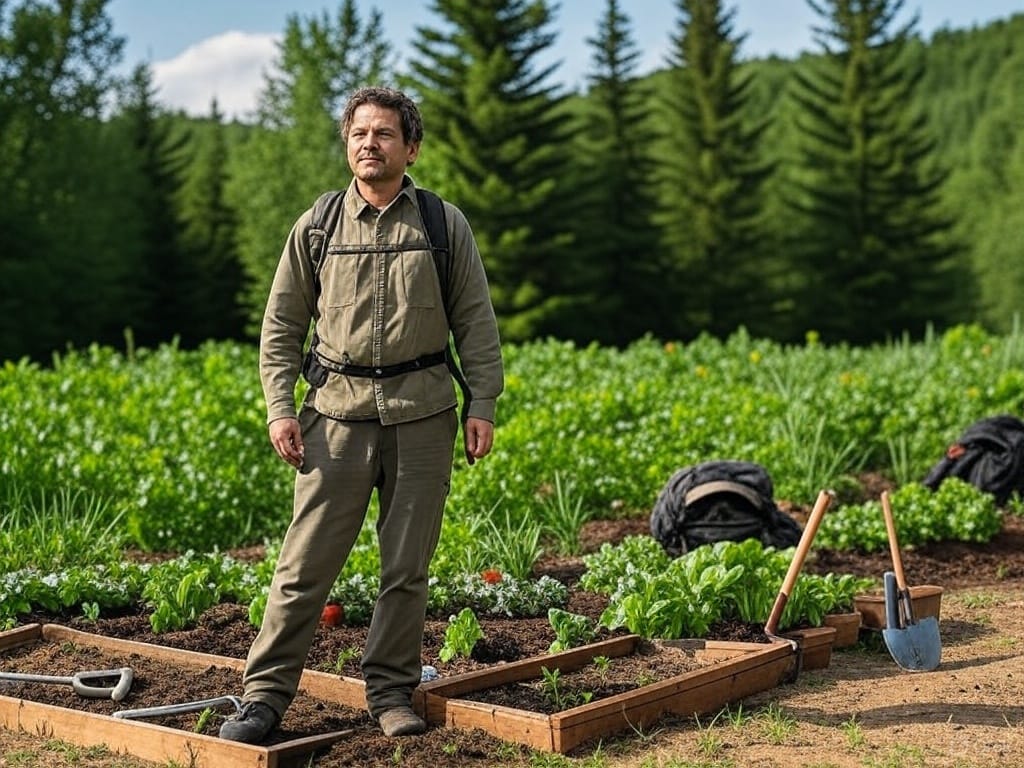Survival Skills
Survival and resilience skills, from growing your own food to mastering crisis management, empower individuals to thrive amid uncertainty by fostering self-reliance and practical know-how.

In a world that feels increasingly uncertain—whether due to natural disasters, economic shifts, or unexpected personal challenges—having the ability to adapt and thrive is more valuable than ever. Survival and resilience skills aren’t just for doomsday preppers or wilderness enthusiasts; they’re practical, hands-on tools that empower anyone to take control of their life, no matter the circumstances. From growing your own food to navigating crises with confidence, these skills are the foundation of true self-reliance.
Why Survival & Resilience Skills Are Essential Today
Life has a way of throwing curveballs when we least expect it. A power outage, a supply chain disruption, or a sudden storm can quickly reveal how dependent we’ve become on modern conveniences. Survival and resilience skills bridge that gap, giving you the know-how to handle disruptions without panic. They’re about more than just “getting by”—they’re about thriving, maintaining your independence, and finding peace of mind in knowing you’re prepared.
These skills also reconnect us with something primal and empowering. Our ancestors didn’t have grocery stores or instant delivery—they grew, hunted, and built what they needed. While we don’t need to abandon modern life, tapping into that resourcefulness reminds us of our own strength. Plus, with climate shifts and global uncertainties on the rise, having a practical toolkit feels less like a hobby and more like a necessity.
Growing Your Own Food
One of the most foundational survival skills is knowing how to produce your own food. Imagine a scenario where store shelves are empty or prices skyrocket—your backyard garden or even a few pots on a balcony could become your lifeline. But it’s not just about emergencies; growing food is a daily act of resilience that saves money, boosts health, and reduces reliance on industrial systems.
Starting Small: From Seeds to Supper
You don’t need acres of land to begin. Start with something simple like herbs—basil, mint, or parsley—in a sunny window. Graduate to vegetables like tomatoes or lettuce in containers if space is tight. The key is understanding your climate (check your growing zone if you’re in the U.S.) and learning the basics: soil quality, watering, and sunlight. Compost kitchen scraps to enrich your soil naturally, and you’ve got a closed-loop system right at home.
Scaling Up: Beyond the Basics
For those with more space, consider raised beds or a small plot for crops like potatoes, beans, or squash. These are hardy, calorie-dense options that store well. Learn to save seeds from your harvest—it’s a skill that ensures you’re never dependent on buying new ones. If you’ve got room for chickens or rabbits, you can add eggs or meat to your self-reliant menu. The learning curve might feel steep, but the reward is food security you control.
Troubleshooting: Pests, Weather, and Patience
Nature isn’t always cooperative. Pests like aphids or unpredictable weather can test your resolve. Research natural pest deterrents (like planting marigolds) and experiment with season extenders like row covers for cold snaps. Resilience here means adapting—every failed crop teaches you something for the next one.
Mastering Crisis Management
Beyond food, resilience shines brightest in a crisis. Whether it’s a blackout, a flood, or a personal setback, the ability to stay calm and resourceful sets you apart. This isn’t about paranoia—it’s about preparation that frees you from fear.
Building a Crisis Toolkit
Start with the essentials: water, shelter, warmth, and food. Store at least a gallon of water per person per day for a minimum of three days (though two weeks is better). Have a way to purify more—boiling works, or invest in a portable filter. For shelter, know how to reinforce your home or set up a temporary base with tarps and cordage. Keep blankets, a camp stove, and fuel on hand for warmth and cooking. Stock non-perishable food like dried beans, rice, or canned goods, rotating them to keep things fresh.
Skills Over Stuff
Gear is great, but skills last longer. Learn to start a fire without matches—flint and steel or a magnifying glass can do the trick. Practice first aid basics: cleaning wounds, making a splint, or even CPR if you can take a course. Navigation is another gem—master a compass or learn to read the stars in case GPS fails. These aren’t just “survivalist” tricks; they’re practical know-how that boosts confidence in any situation.
Mental Resilience: The Unseen Strength
Crises test your mind as much as your body. Practice staying calm under pressure—try small challenges like a day without power to build mental toughness. Focus on problem-solving over panic. Journaling or meditation can help you process stress, keeping your head clear when it counts.
Everyday Resilience
Survival isn’t always about dramatic emergencies—it’s also about enduring life’s slow grinds. These skills make you adaptable and self-sufficient day-to-day, not just when disaster strikes.
Repair and Repurpose
Why buy new when you can fix what’s broken? Learn basic sewing to mend clothes, or tackle simple woodworking to repair furniture. Repurposing is just as powerful—turn old jars into storage or scrap wood into shelves. These habits save money and reduce waste, reinforcing your independence.
Energy Independence
Power outages happen, but you can soften the blow. A solar charger for small devices or a hand-crank radio keeps you connected. If you’re ambitious, explore solar panels or a small wind turbine for off-grid basics. Even candles and a stash of batteries go a long way.
Community as a Resource
Self-reliance doesn’t mean isolation. Build a network of like-minded folks—swap seeds, share tools, or trade skills. A neighbor who knows plumbing might be your MVP in a pinch, and you can offer your gardening expertise in return. Resilience thrives in cooperation.
First Steps Toward Self-Reliance
Feeling overwhelmed? Don’t be. Start small and build momentum. Pick one skill—say, planting a pot of herbs or learning to tie a few basic knots—and master it. Set aside 15 minutes a day to practice or research. Books, online forums, and even X posts from survival enthusiasts can guide you (I could search those for you if you’d like!). The goal isn’t perfection—it’s progress.
Track your wins: the first tomato you grow, the fire you start, the chair you fix. Each step stacks up, turning “what if” into “I’ve got this.” By the time the next curveball comes—whether it’s tomorrow or years from now—you’ll be ready, not just to survive, but to thrive.
Embracing the Power of Preparedness
Survival and resilience skills are more than a safety net—they’re a mindset. They remind us that we’re not helpless, no matter what the world throws our way. From the satisfaction of eating food you grew to the confidence of facing a storm head-on, these abilities transform uncertainty into opportunity. So, roll up your sleeves, get your hands dirty, and start building a life that’s as tough as it is rewarding. The tools are yours to claim—why wait?





